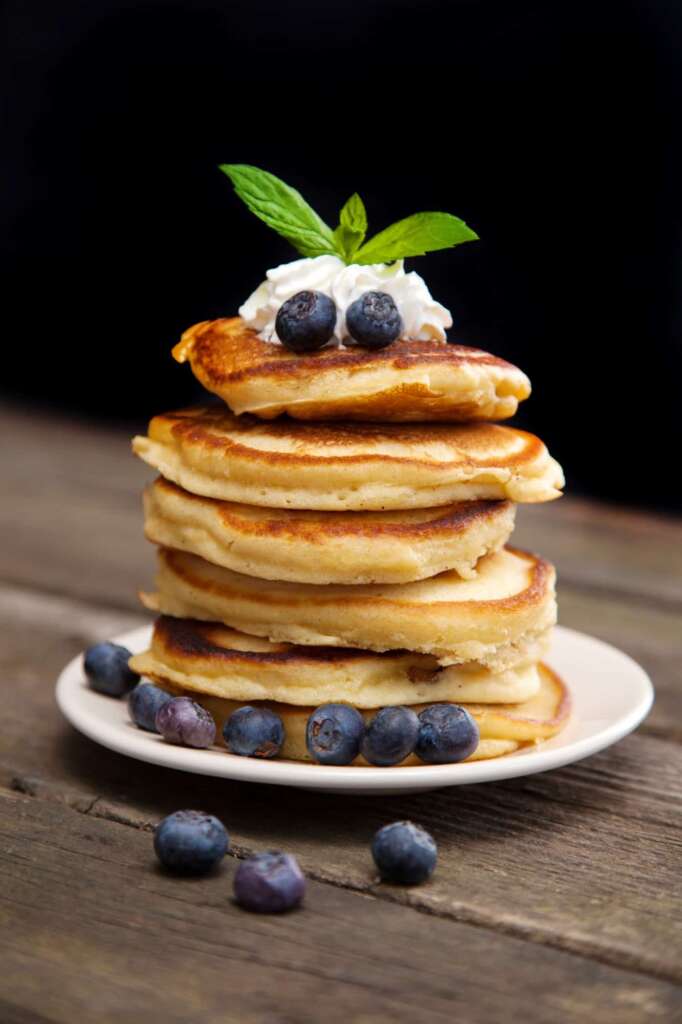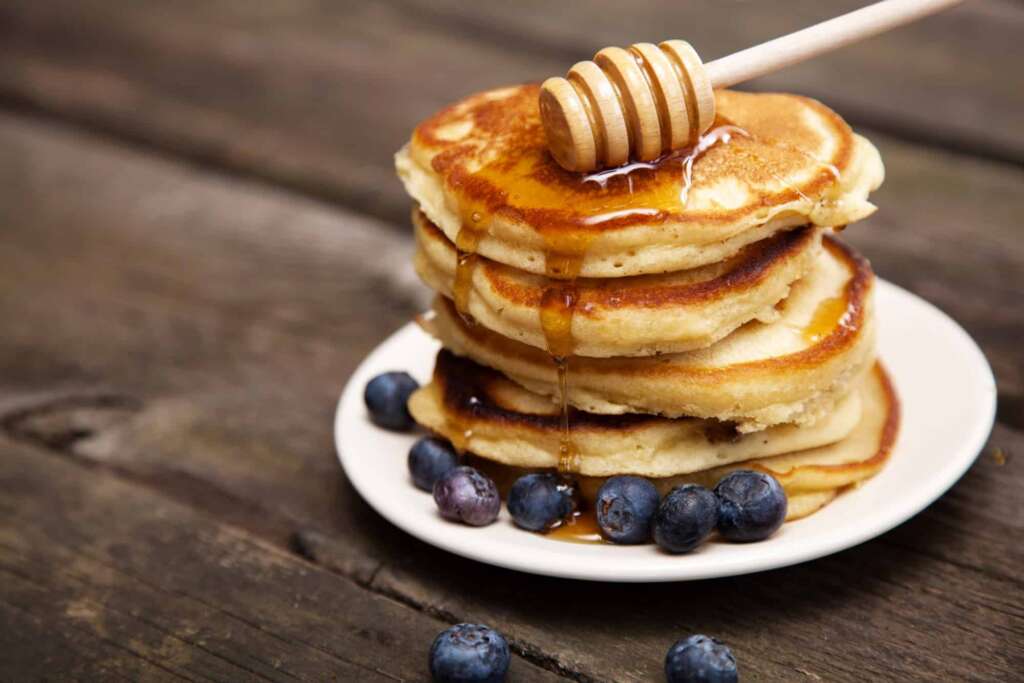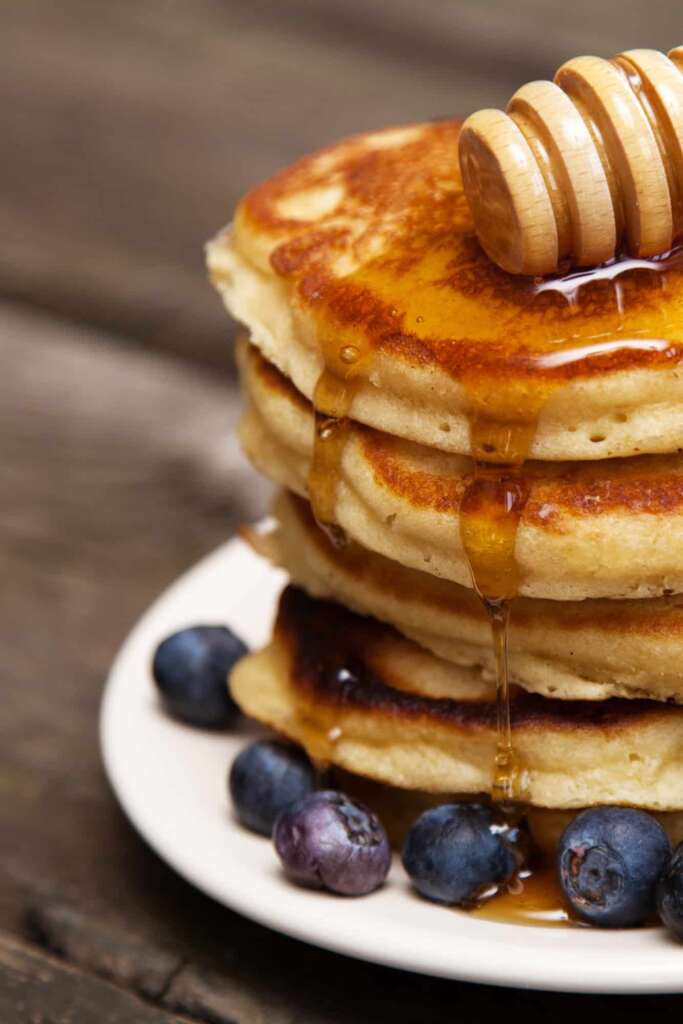1. Top vs Side: The Same Food with a Completely Different Message
Different views can completely change the topic of your photo. Shooting from the top hides the height of your food and is often used to showcase the ingredients of your food. However, if you shoot from the side, as in the second image below, the photo describes less of the ingredients and more about the stack of pancakes. So before you decide which angle to use in your promotional product, decide on what you want to promote – the ingredients or the structure.
Delicious pancakes with blueberry and mint
Delicious pancakes with blueberry, whipped cream and mint
2. Emphasize the Details with Wide and Tight Crops
A great way to tell a story from mere food is to include two photos of the same dish side-by-side. A wide crop shows the overall look of your dish while the tight crop emphasizes the dripping syrup.
3. Use Negative Space to Create Room for Text
Prepping food takes a lot of time and most food photographers cover all angles. But there is one that they frequently forget and that is a photo with negative space. Negative space, also called white space, is the portion of your photo that is intentionally empty. It’s often used to give an uncluttered look but in the food photography world, they’re used mostly to create room for text. These type of photos are frequently used in promotional materials so remember to include these in your shoot.
4. Pay Careful Attention to Your Depth of Field
Using a shallow depth of field is the perfect way to blur out the background and foreground. Photographers are willing to pay a hefty price for a lens with a large aperture. But just because you have a nice F1.4 lens, it doesn’t mean you should always shoot at F1.4. Shooting with a large aperture will create the most blur but this can often times blur out too much leaving only a sliver of your food in focus. You have to get your priorities right – getting enough of your food in focus is more important than a creamy blurred background. To get your food in focus AND have the extreme shallow DOF, simply use a telephoto lens. Another technique is Focus Stacking but that requires so much work that photographers only use it when absolutely necessary.






Nice Article